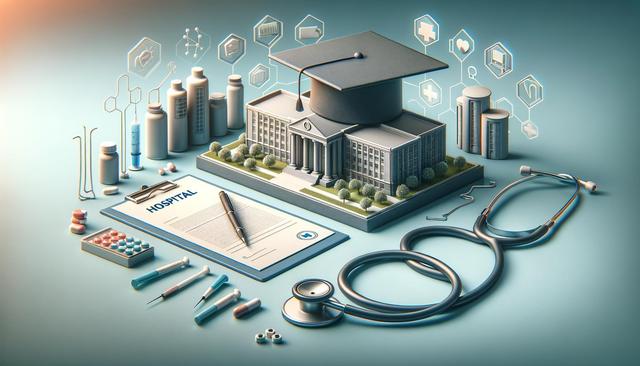What Is Bipolar Disorder and How Is It Treated?
Bipolar disorder is a mental health condition characterized by extreme mood swings, including emotional highs (mania or hypomania) and lows (depression). There are several types of bipolar disorder, with Bipolar I and Bipolar II being the most commonly diagnosed. Treatment approaches vary depending on the type and severity of the condition. Effective treatment often combines medication, therapy, and lifestyle changes. Understanding the available options is essential for anyone seeking support—whether for themselves or a loved one.
Medications such as mood stabilizers, antipsychotics, and antidepressants are often prescribed to manage symptoms. However, medication alone is not always sufficient. Many individuals benefit from structured environments found in inpatient bipolar depression facilities or residential treatment bipolar teens programs. These programs offer constant supervision and a team of professionals to design and adjust treatment plans as needed, providing a safer space for recovery during severe mood episodes.
Private and Inpatient Care Options
For those in need of more intensive support, private bipolar treatment centers USA offer individualized care plans and personalized attention. These facilities are designed to provide a peaceful and supportive environment, often featuring amenities that promote healing and comfort. Choosing a private center can be particularly beneficial for individuals who value privacy and discretion during their treatment journey.
Inpatient bipolar depression facilities are another critical option, especially during acute depressive or manic episodes. These centers provide 24/7 monitoring and support, as well as access to mental health professionals trained in crisis intervention. Inpatient care may include:
- Medication management and monitoring
- Group and individual therapy sessions
- Family counseling and education
- Skill-building and coping strategies
These services aim to stabilize mood swings, reduce symptoms, and prepare individuals for a successful transition to outpatient care or community-based support systems.
Therapeutic Approaches for Bipolar II Disorder
The best therapy for bipolar 2 disorder typically includes a blend of cognitive behavioral therapy (CBT), interpersonal and social rhythm therapy (IPSRT), and psychoeducation. These therapies help individuals recognize patterns in mood changes, develop strategies to manage stress, and maintain regular daily routines. Consistency and structure are particularly important for those with Bipolar II, where depressive episodes tend to be more frequent and prolonged.
Some therapy techniques that have shown positive outcomes include:
- Cognitive Behavioral Therapy (CBT): Helps reframe negative thought patterns and behaviors.
- Dialectical Behavior Therapy (DBT): Focuses on emotional regulation and interpersonal effectiveness.
- Family-Focused Therapy: Involves family members to improve communication and reduce stress at home.
These therapies are often integrated into the care models used by private bipolar treatment centers USA and inpatient bipolar depression facilities, ensuring a more comprehensive approach to treatment.
Supporting Teens with Residential Treatment
Adolescents experiencing symptoms of bipolar disorder face unique challenges. Residential treatment bipolar teens programs are designed to address the specific needs of this age group. These facilities offer structured routines, therapeutic activities, academic support, and a safe environment where teens can focus on managing their mental health without the distractions and pressures of daily life.
Key components of residential treatment programs for teens include:
- Developmentally appropriate therapy
- Peer support groups
- Life skills training
- Family involvement and therapy sessions
With early intervention and targeted support, many teens show significant improvement in mood stability, academic performance, and social functioning. Programs tailored to adolescents can foster long-term resilience and equip them with the tools needed to navigate the complexities of bipolar disorder.
The Role of Holistic Clinics in Bipolar Disorder Management
In recent years, holistic bipolar disorder clinics have gained recognition for their integrative approach to mental health. These clinics often incorporate non-traditional therapies such as yoga, meditation, art and music therapy, nutritional counseling, and mindfulness practices alongside conventional treatment methods. This combination addresses the mind, body, and spirit, helping individuals develop a more balanced and sustainable lifestyle.
Common holistic treatments include:
- Mindfulness-Based Stress Reduction (MBSR)
- Acupuncture and massage therapy
- Exercise and movement therapy
- Diet and lifestyle coaching
While holistic clinics are not a replacement for clinical care, they can be a valuable complement, especially for those looking to enhance their overall well-being and prevent relapse. Many private bipolar treatment centers USA now incorporate holistic elements into their programs to promote long-term recovery and emotional balance.
Conclusion: Finding the Right Path Toward Stability
Treating bipolar disorder is a multifaceted process that requires a tailored approach based on individual needs and circumstances. Whether through private bipolar treatment centers USA, inpatient bipolar depression facilities, or holistic bipolar disorder clinics, a wide range of options is available to support recovery. Understanding the best therapy for bipolar 2 disorder and exploring residential treatment bipolar teens programs can provide critical support for individuals and families navigating this complex condition. With the right combination of professional care, therapy, and lifestyle support, long-term stability is within reach.




Leave a Reply